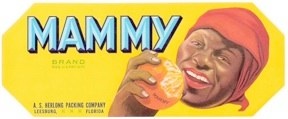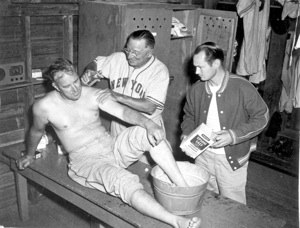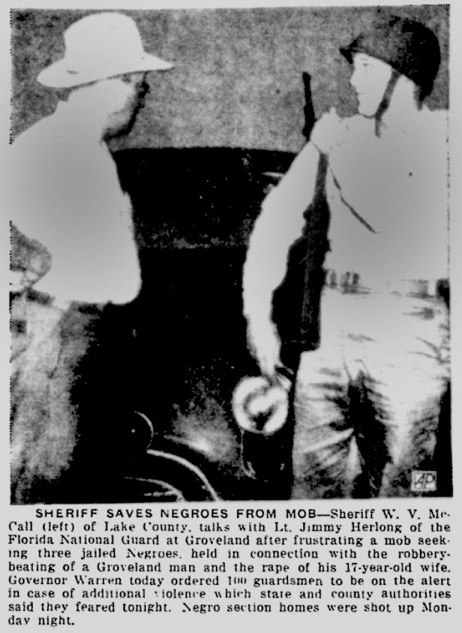Gilbert King is the author of Devil in the Grove: Thurgood Marshall, the ... He is also a featured contributor to Smithsonian magazine's history blog, Past Imperfect .
BLOG









Gilbert King
The Citrus Baron
In the years following World War II, Florida’s booming citrus industry created some of the most powerful men in the state. In 1949, A.S. Herlong, Jr. (whose family owned the A.S. Herlong Packing Company in Leesburg) was a rising star in Florida, becoming a member of the U.S. House of Representatives that same year Norma Padgett leveled her accusations of rape, and bringing Sheriff Willis McCall and Lake County into national prominence.
The ensuing Groveland riots weren’t the first time that Willis McCall made headlines in Lake County, though. Four years earlier, a group of black citrus pickers had attempted to organize in protest of a mandatory seven-day workweek at A.S. Herlong & Co, when McCall came in and began busting heads. The workers complained of the sheriff’s brutality to the NAACP, which pressured the FBI into a civil rights investigation. But the pickers, threatened and scared for their lives, packed their things and left Lake County, causing the FBI’s investigation to collapse due to lack of witnesses. Mandatory seven-day workweeks soon returned at A.S. Herlong & Co.
Crate packing labels on two of A.S. Herlong & Co. brands of oranges.
A.S. Herlong lived the good life in Lake County, serving as county judge for twelve years until his election to Congress in 1949. He also served as president of the Florida State Baseball League, where, in photographs, he can be seen getting a rubdown at the New York Giants training camp in Sanford, Florida.
Sid Herlong gets a rubdown by former New York Giants star, Hans Lobert in Sanford, Florida in 1950.
(State Archives of Florida)
Jackie Robinson did not get such a welcome when he visited Sanford the year before breaking baseball’s color barrier with the Brooklyn Dodgers in 1947. Robinson had arrived at Sanford for a spring training game, singled in his first at bat, stole second, and scored on a base hit. There was mumbling and booing in the stands as Robinson crossed the plate and made his way toward the dugout, as hundreds of angry Floridians were still not ready to accept a black man playing baseball alongside whites. A Sanford police officer ultimately threatened to cancel the game unless Robinson left the field, and the future Hall of Famer was pulled before the first inning was complete.
A.S. Herlong, Jr. served in Congress for twenty years and is perhaps best known for reading a list of “Current Communist Goals” on the House floor in 1963. Facing a difficult bid for reelection, he left Congress in 1968, as central Florida, like most of the South, began to align itself to the Republican Party. Herlong became a Republican himself in 1985, as he was known in Congress for being “fiercely conservative on tax issues and as a spokesman for oil and cattle interests.” As his daughter told the New York Times, “He didn’t change. But the Democratic Party changed in this area.”
That change in Southern politics can be traced all the way back to Thurgood Marshall’s victory in Smith v. Allwright in 1944, the Supreme Court decision that struck down all-white primaries. Blacks began to register and vote, and many whites, unhappy with civil rights legislation, began to flock from the Democratic Party in the South, beginning with the Dixiecrats. In the late 1960s, the political realignment led to the “Southern Strategy,” where Republicans focused campaigns on states’ rights, welfare policy, and government spending, and the “Solid South” was no longer a Democratic stronghold.
Congressman Sid Herlong, in 1949, crowns Watermelon Festival Queen Dolly Dean Beard in Leesburg, Fl. (State Archives of Florida)
Sid. Jr. wasn’t the only Herlong making the news in 1949. The congressman’s younger brother, Jimmy Herlong, was a Lieutenant in the Florida National Guard at the time of the Groveland riots.
Here he is pictured below with Lake County Sheriff Willis McCall just two days after the alleged rape of Norma Padgett, when the Guard was called in to maintain order in Groveland. Ironically, most of the violence in Groveland did not begin until after the National Guard arrived–a fact that Thurgood Marshall and the NAACP were extremely critical of.
Reporters at the scene observed McCall, Herlong, and Flowers Cockcroft (the leader of a mob of white men who had gathered with guns and torches) hold a conference, “like generals on a battlefield.” McCall, who had prevented the lynching of the Groveland Boys the night before, then suspiciously ordered the Guard to pull back from the area just before hundreds of Klansmen and Bay Lake men rolled into South Lake County, burning the homes of targeted blacks. McCall would later tell the FBI that he didn’t recognize any of the men in the mob.
Although Sheriff McCall was the subject of much criticism in the press and from the NAACP for allowing the burning of black homes by a vengeful mob and under his watch, the voting citizens of Lake County, Florida did not share the same view. Willis McCall enjoyed a 28-year reign as Sheriff throughout Lake County’s most prosperous years in citrus business.
Sunday, April 22, 2012

Photograph by Lynne Dellone.






